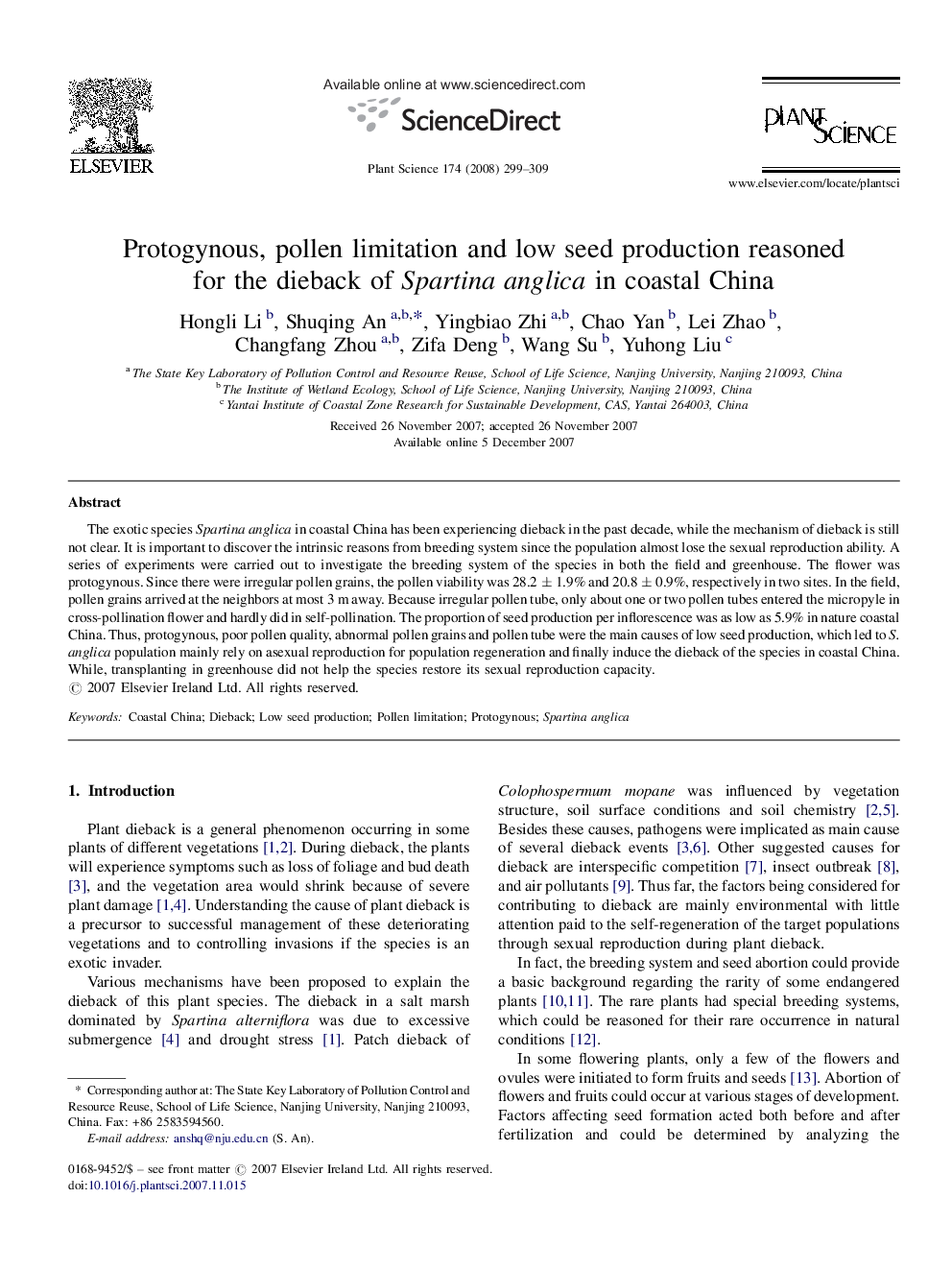| Article ID | Journal | Published Year | Pages | File Type |
|---|---|---|---|---|
| 2018503 | Plant Science | 2008 | 11 Pages |
Abstract
The exotic species Spartina anglica in coastal China has been experiencing dieback in the past decade, while the mechanism of dieback is still not clear. It is important to discover the intrinsic reasons from breeding system since the population almost lose the sexual reproduction ability. A series of experiments were carried out to investigate the breeding system of the species in both the field and greenhouse. The flower was protogynous. Since there were irregular pollen grains, the pollen viability was 28.2 ± 1.9% and 20.8 ± 0.9%, respectively in two sites. In the field, pollen grains arrived at the neighbors at most 3 m away. Because irregular pollen tube, only about one or two pollen tubes entered the micropyle in cross-pollination flower and hardly did in self-pollination. The proportion of seed production per inflorescence was as low as 5.9% in nature coastal China. Thus, protogynous, poor pollen quality, abnormal pollen grains and pollen tube were the main causes of low seed production, which led to S. anglica population mainly rely on asexual reproduction for population regeneration and finally induce the dieback of the species in coastal China. While, transplanting in greenhouse did not help the species restore its sexual reproduction capacity.
Related Topics
Life Sciences
Agricultural and Biological Sciences
Plant Science
Authors
Hongli Li, Shuqing An, Yingbiao Zhi, Chao Yan, Lei Zhao, Changfang Zhou, Zifa Deng, Wang Su, Yuhong Liu,
